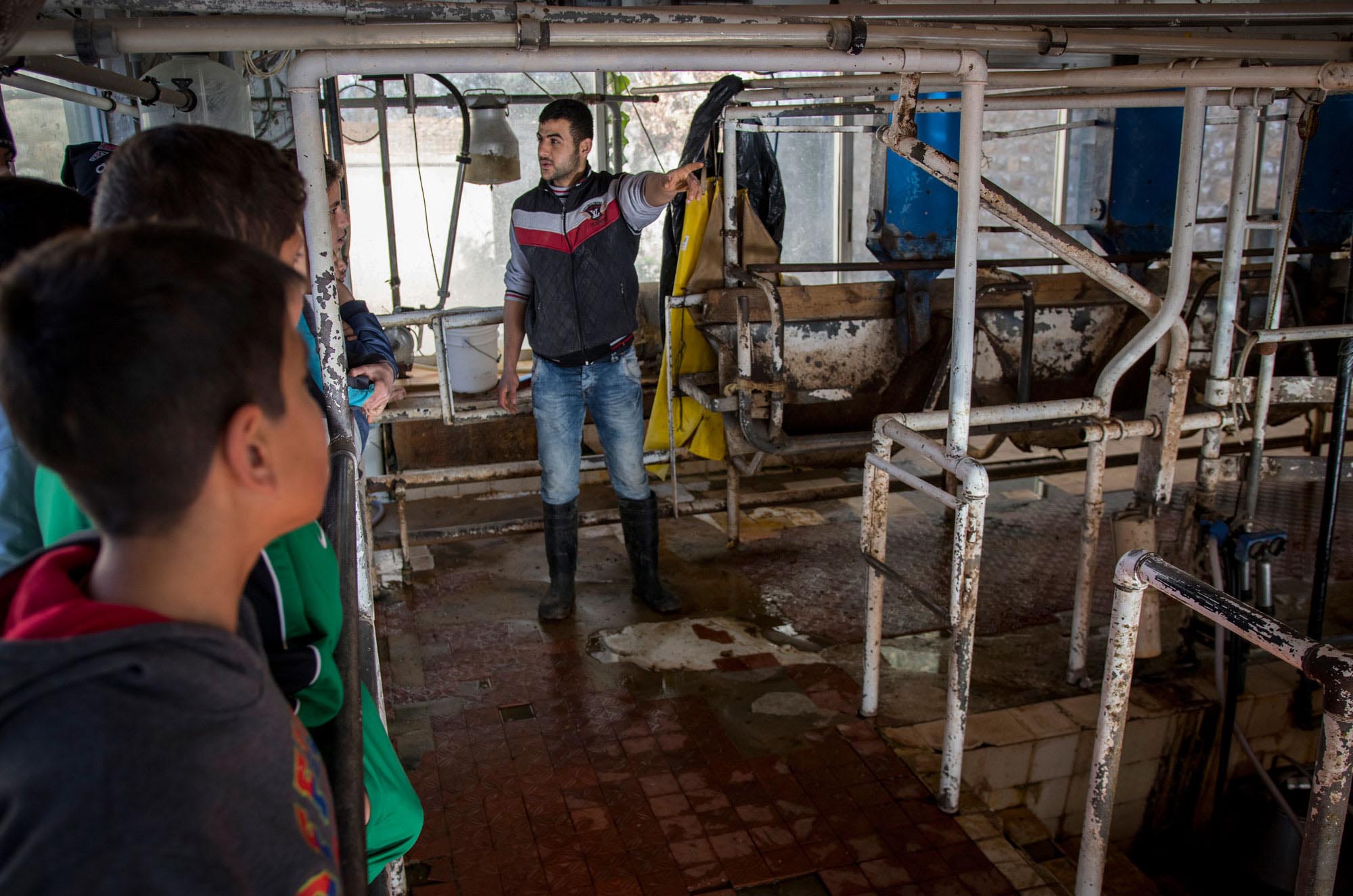Mar, 2017
In response to this crisis, Anera is reaching refugees and impoverished host communities through a variety of job skills training courses that boost employability among the most vulnerable segments of the population.
Today marks the sixth anniversary of the Syrian uprising and the start of the devastating war. Now there are 4.9 million displaced Syrians within the country and scattered throughout the region. An estimated 1.5 million of them have taken refuge in neighboring Lebanon, where they are struggling to find a place in the economy amid rising poverty and unemployment rates.
Agriculture Courses for Youth in a Rural Landscape
The majority of Syrian refugees in Lebanon live in the Bekaa Valley and the north, according to the UNHCR. These regions are also the most rural, with about 70% of all arable land in Lebanon. There is a great need for more agricultural workers, yet only 10% of local youth learn how to farm the land, choosing other business skills instead.
Anera recognizes that the influx of refugees from Syria represents a great opportunity for Lebanese farmers. And farming is, in turn, a great opportunity for the refugees.
“Agriculture is one of the few sectors that is accessible to Syrians, according to Lebanese government regulations,” said Nisrine Makkouk, Anera’s education program manager in Lebanon. “So we paid special attention to including Syrian refugee youth in new agriculture classes we’re introducing to our job skills training options.”
The pilot courses cover beekeeping, livestock care and dairy production. They reached a total of 57 youth, girls and boys, Syrian and Lebanese.
In Khirbet Roha, West Bekaa, 16 youth enrolled in the livestock care class. Right after completing the course, about half of the youth participants found jobs and apprenticeship opportunities.


Syrian and Lebanese Youth Put Skills to Use
Sixteen-year-old Mohammad fled Syria with his mom and five younger siblings and settled in Khirbet Roha. Due to the death of his father and his mother’s illness, Mohammad is now the only breadwinner of the family.
“We used to have a small piece of land back home in Syria, and my uncle had a farm, but I never got the chance to learn more about caring for livestock until I joined this course,” Mohammad said. His hard work and enthusiasm impressed the trainer, who offered him a job at his own farm after he completed the training course.
Donia, a 22-year-old Lebanese woman, participated in the livestock care class offered in her hometown of Meshmesh. “Chicken farming skills are in demand in the village,” said Donia. “With my new knowledge I can start up a small business from my own house.”
To congratulate graduates of the livestock and beekeeping courses, Anera sent graduation kits of beehives and chicken coops. Now the youth have the tools and know-how they need to start building a livelihood and a small business of their own.
The five pilot courses were designed to be short, specific, and directly linked to market needs. Initial findings at the end of the courses indicate that there is a need for similar ways to attract youth to the agriculture sector and that youth are interested in learning more about it.
In total, 6,777 out-of-school youth participated in the job skills courses offered last year. They covered diverse topics including agriculture, graphic design, cosmetology, floor tiling, computer skills, tailoring and advertising.
The program is implemented in partnership with UNICEF and with funding from UK Aid, German Cooperation and the United States Bureau of Population, Refugees, and Migration.


